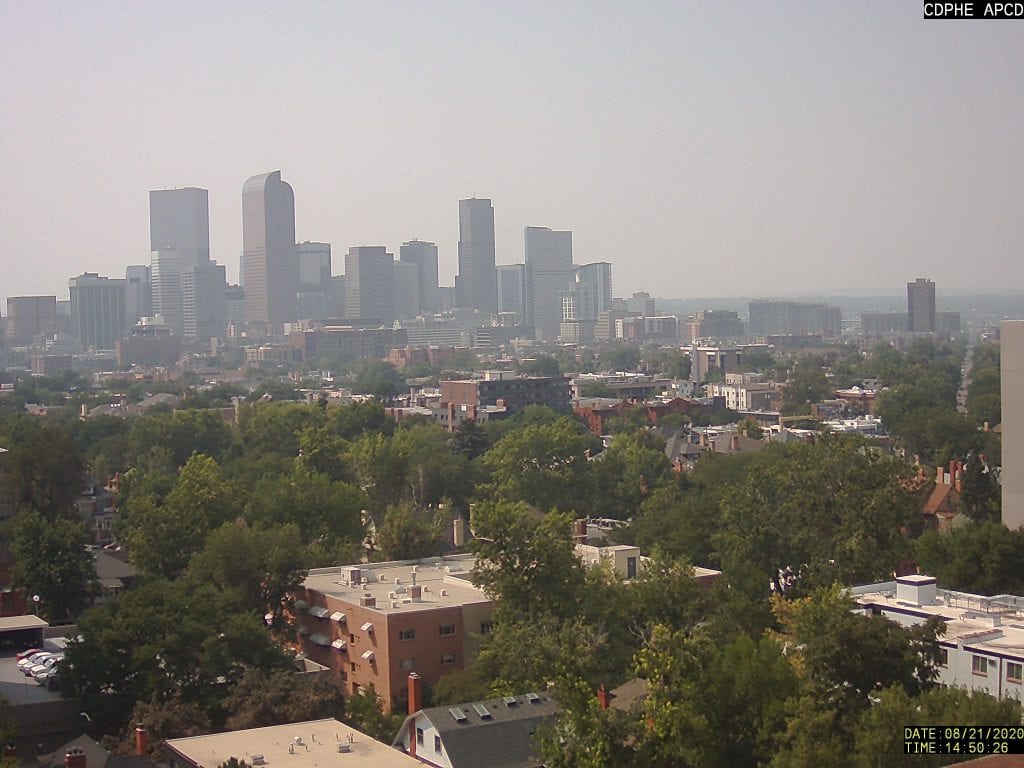Current work in wildlife, rivers, public lands, and climate
Press Releases
WildEarth Guardians calls on Colorado health officials to confront Denver metro smog pollution
“With pollution soaring in communities along Colorado’s Front Range, it’s time for Governor Polis’ administration to start taking this problem seriously and do what’s needed to restore clean air,” said Jeremy Nichols, WildEarth Guardians’ Climate and Energy Program Director. “For too long, state regulators have avoided taking the tough action needed to rein in smog. We’re demanding that change right now.”
In a formal prehearing statement, WildEarth Guardians requested the Air Commission adopt stronger rules to drastically reduce emissions from cars and trucks, as well as offset pollution from industrial sources, including sources associated with the oil and gas industry.
The filing comes in response to a plan proposed by the Colorado Air Pollution Control Division that purports to address the region’s ground-level ozone pollution.
Ozone is the key ingredient of smog and poses myriad health threats. It forms when pollution from smokestacks, tailpipes, and oil and gas extraction reacts with sunlight.
For years, the Denver Metro area, including Adams, Arapahoe, Boulder, Broomfield, Denver, Douglas, Jefferson, Larimer, and Weld Counties, has violated federal health standards for ozone. In 2019, the U.S. Environmental Protection Agency classified the region as a “serious” dirty air area because of ongoing violations.
In response, Governor Jared Polis commented, “We have an air quality crisis across the Denver metro area with significant health impacts…We have to do everything in our power right here at home to make our air cleaner and our people healthier as soon as we possibly can.”
This fall, the Air Pollution Control Division proposed a clean up plan that claims to “attain” health standards by 2020.
Unfortunately, actual monitoring data so far in 2020 shows the region will not attain and that violations will continue into the coming years. A recent presentation by the Air Pollution Control Division shows that 10 monitoring sites, which are located from Chatfied State Park in Douglas County north to Fort Collins, are in violation of health standards.
Although wildfire smoke influenced air quality in the region in the month of August, monitoring data shows that even before then, six monitoring sites had registered violations of ozone standards.
In spite of the monitoring data, the Air Pollution Control Division has requested the Air Commission adopt its plan, claiming that it will meet health standards.
“Colorado regulators are playing the worst sleight of hand with the air we breathe, trying to convince us that they’re cleaning up pollution when the monitoring data says otherwise,” said Nichols. “It’s shocking that even with Governor Polis calling for his swift action to confront the Denver Metro area’s smog, his Air Pollution Control Division is making more excuses and avoiding strong action to protect people and air quality.”
In response, WildEarth Guardians filed its own proposal, calling on the Air Commission to adopt a rule that ratchets down limits on emissions from motor vehicles and requires new sources of ozone forming pollution offset their emissions to ensure net reductions.
Most new sources of ozone forming pollution are related to oil and gas extraction in the region, which continues to boom even amid the COVID health crisis and economic downturn of the oil and gas industry.
The Air Quality Control Commission is scheduled to hold a virtual rulemaking hearing from December 16-18 to hear public comment on the matter, consider the Air Division’s plan, and to weigh proposals from WildEarth Guardians and others.
“We hope the Colorado Air Quality Control Commission puts health, communities, and Coloradans before polluters,” said Nichols. “With smog continuing to plague the Denver Metro area, we need to stop giving polluters a break and start putting clean air first.”
